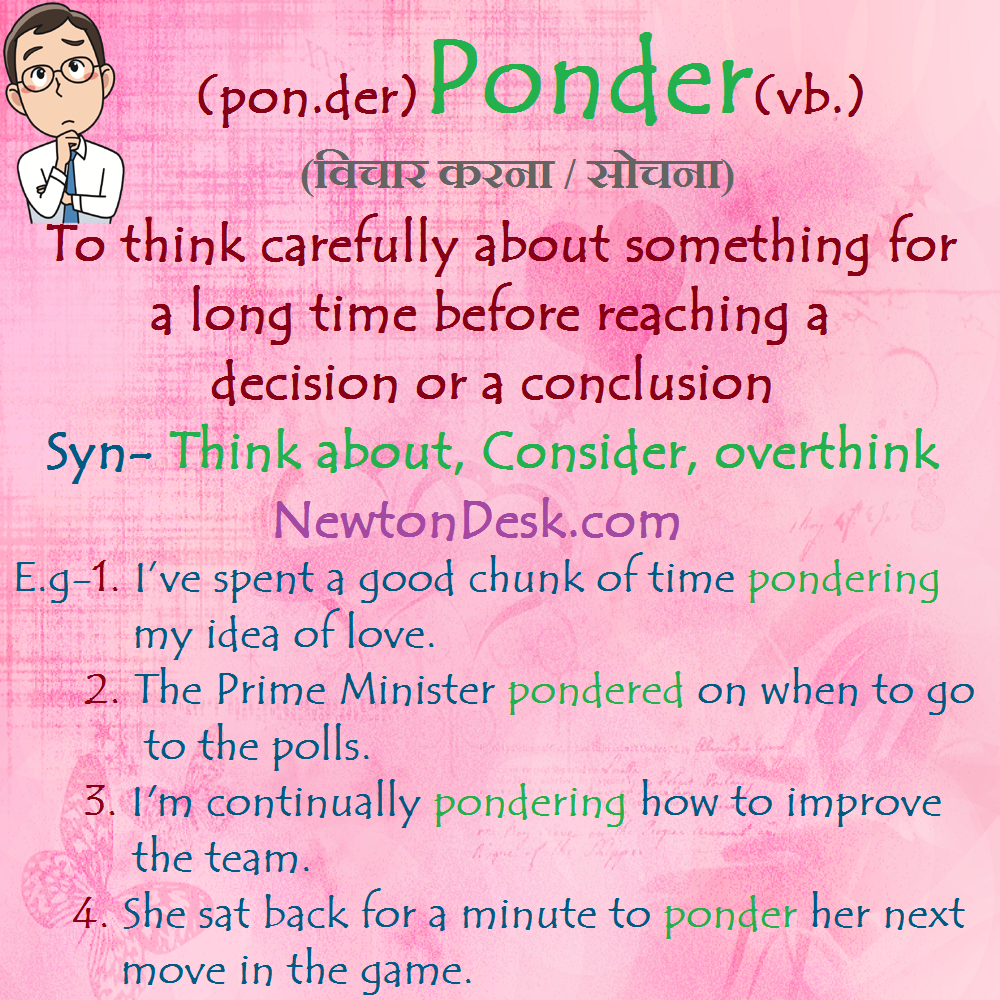Have you ever come across the word ‘ponder’ and wondered what it means? Let’s delve into the depths of this intriguing word and explore its significance.
Definition of Ponder
The word ‘ponder’ is a verb that means to think about something carefully, thoroughly, and deeply. When you ponder a question or a problem, you engage in deep reflection and contemplation.

Credit: wordpandit.com
Origins of the Word
The term ‘ponder’ has its origins in the Latin word ‘ponderare,’ which means to weigh. This association with weighing reflects the idea of carefully considering different aspects of a subject before coming to a conclusion.

Credit: newtondesk.com
Examples of Pondering
Imagine a scenario where you are faced with a difficult decision. You might take a moment to ponder the pros and cons of each option, weighing them carefully in your mind before reaching a resolution.
Another example of pondering could be when you are reading a complex piece of literature. You might pause to ponder the author’s intentions, the deeper meanings behind the text, and the implications of the story.
Why Pondering is Important
Pondering is a valuable exercise as it allows you to explore different perspectives, consider various possibilities, and make informed decisions. By taking the time to ponder, you can gain a deeper understanding of a subject and cultivate critical thinking skills.
Benefits of Pondering
1. Enhanced Critical Thinking: Pondering encourages you to analyze information critically and evaluate it from different angles.
2. Improved Decision-Making: By pondering a situation, you can make well-thought-out decisions based on careful consideration.
3. Deeper Understanding: Pondering helps you gain deeper insights into complex topics and encourages intellectual growth.
4. Stress Reduction: Taking the time to ponder can help reduce stress by providing a space for reflection and contemplation.
How to Ponder Effectively
1. Set Aside Time: Allocate dedicated time in your day to ponder important questions or ideas without distractions.
2. Ask Thought-Provoking Questions: Pose challenging questions to yourself to stimulate deeper thinking and reflection.
3. Engage in Solitude: Find a quiet space where you can ponder without interruptions and allow your thoughts to flow freely.
4. Write Down Your Thoughts: Keeping a journal can help you track your ponderings, insights, and reflections over time.
Conclusion
In conclusion, the word ‘ponder’ encapsulates the essence of thoughtful reflection and deep contemplation. By embracing the practice of pondering, you can enhance your critical thinking skills, make informed decisions, and gain a deeper understanding of the world around you. So, next time you encounter a challenging question or idea, take a moment to ponder, and unlock the power of deep thinking.




